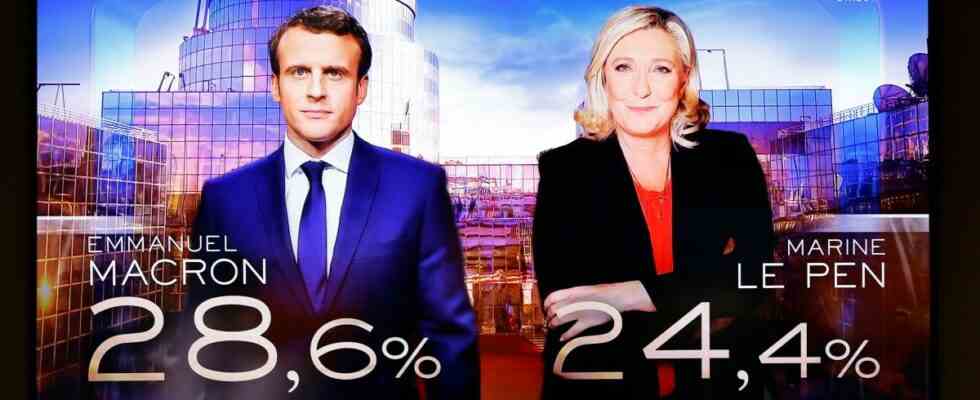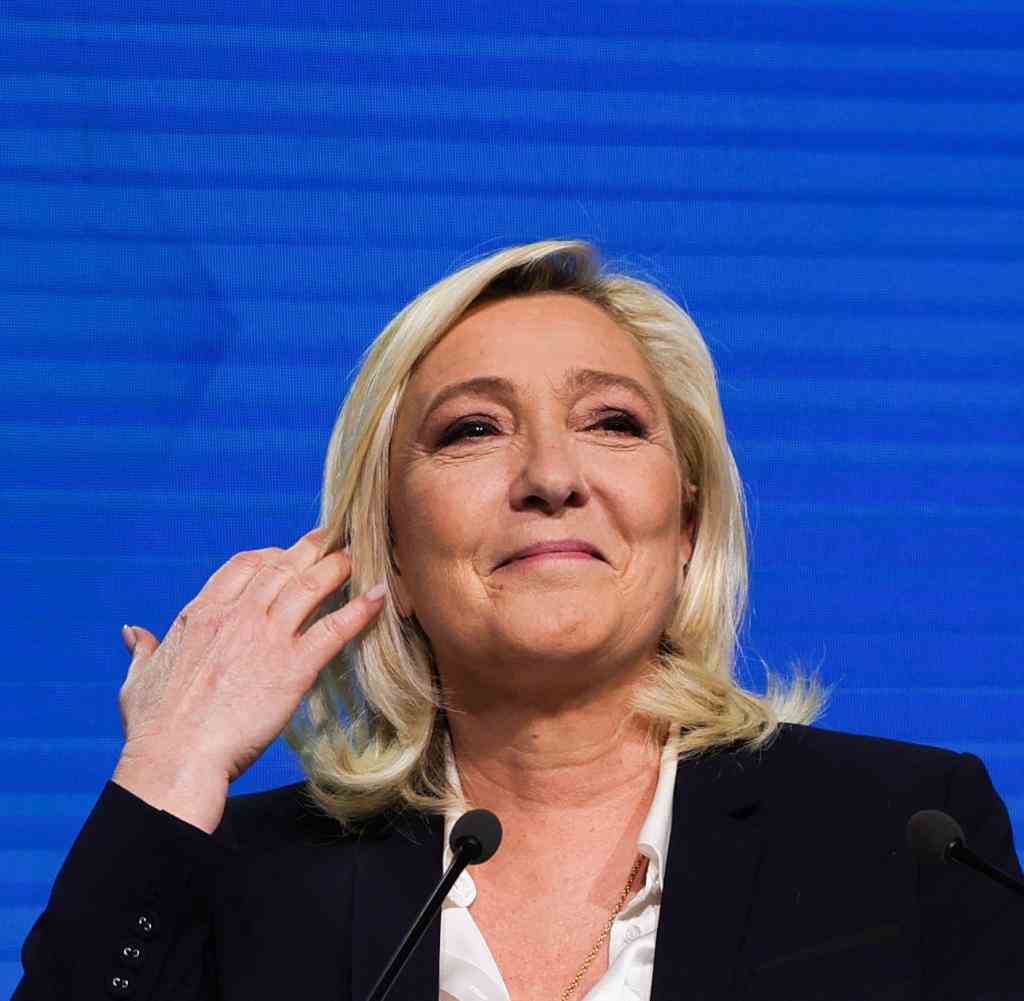Macron leads clearly – Le Pen reaches runoff
Macron and Le Pen in presidential runoff
The race for the presidency in France is likely to be decided in a runoff between incumbent Emmanuel Macron and Marine Le Pen of the right-wing populist Rassemblement National. Our reporter Fanny Fee Werther reports from Paris.
France’s head of state Emmanuel Macron is ahead in the first round of the presidential election, according to figures from the Interior Ministry. Right-wing populist Marine Le Pen follows in second place. This means that on April 24th there will be a repeat of the last runoff election.
IIn France there will be another duel between the liberal President Emmanuel Macron and the right-wing Marine Le Pen for the highest office. According to figures from the Ministry of the Interior on Monday night, the incumbent head of state and his competitor from the Rassemblement National will face each other in the run-off election on April 24.
The Interior Ministry in Paris published the results on Monday night after counting 92 percent of the votes of all voters registered for the election. Accordingly, Macron won 27.4 percent and Le Pen 24.3 percent. Left-wing politician Jean-Luc Mélenchon came third with 21.3 percent of the vote. The incumbent head of state and his competitor from the Rassemblement National will compete against each other on April 24th.
According to the Interior Ministry, right-wing extremist Éric Zemmour passed the conservative Valérie Pécresse with around 4.8 percent with around 6.9 percent. Socialist candidate Anne Hidalgo was lagging behind at just over 1.7 percent. The Green Yannick Jadot came to more than 4.4 percent.
The Socialists, who still provided the President from 2012 to 2017 with François Hollande, and the Conservatives suffered crushing defeats. For the two former people’s parties, it is the worst result in the party’s history.
The three left-wing candidates Jadot, Hidalgo and Fabien Roussel immediately called for voting for Macron in the second round. Pécresse announced that she would cast her vote for Macron herself, but refrained from appealing to her supporters, some of whom polls indicate are more likely to vote for Le Pen. Zemmour called for Le Pen’s election.
Le Pen and Macron – Opposing concepts
In his speech on election night, Macron thanked his voters for their support. “Your trust honors me, obliges me and binds me,” said the 44-year-old in front of crowds of cheering supporters in Paris. Beaming, he added: “You can all count on me to implement this progress and opening project.”
Emmanuel Macron supporters cheer at an election party in Paris
Source: AP/Thibault Camus
Macron paid tribute to all of his eleven opponents and praised a respectful election campaign. He expressed special thanks to those of them who, after their own defeat, had already called for support for Macron in the runoff between him and the right-wing Marine Le Pen on election night. Voters should agree. “Some will do it to prevent the far right and I am fully aware that this does not count as support for my project and I respect that.”
In her speech, Le Pen insisted on France’s independence and values. “Two opposite visions of the future” prevailed for the runoff, said Le Pen. She represented “social justice around the millennia-old concept of nation and people”. It will ensure national independence and the ability of ordinary French people to decide for themselves. “I will fix France in five years,” she said.
Macron benefited from the desire for stability
Even if many French were dissatisfied with Macron’s first term and he did not inspire enthusiasm in the election campaign, the 44-year-old benefited from the weakness of other candidates and wishes for stability in the face of the Ukraine war.
The right-wing populist Le Pen, on the other hand, tried to score points with more moderate tones than before and at the same time presented herself as an advocate for those who are suffering from inflation and rising prices for electricity, fuel and food. The other candidates played a much smaller role in the election campaign.
Macron and Le Pen will now face off on April 24 – a repeat of the 2017 runoff duel in which Le Pen ultimately lost to Macron. Polls predicted a much tighter outcome for this time. Again and again, the candidate who finished second in the first round won the run-off in the French presidential election.
Le Pen is competing for the third time. The long-time politician, who succeeded her father in the party leadership of the Rassemblement National (formerly: Front National), is committed, among other things, to restricting immigration and social benefits for foreigners.
Macron, who backed economic progress during the election campaign, made it into the Élysée Palace in 2017 with his La République en Marche movement. At that time a more left-wing candidate, he now increasingly represents liberal-conservative issues. Before becoming president, he worked as an investment banker, advised the socialist President François Hollande and was Minister of Economy from 2014 to 2016 under him.


